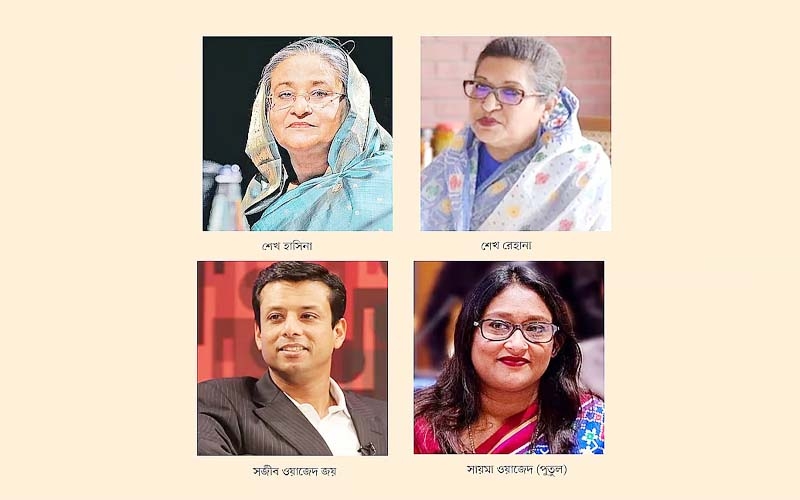- Intimidation or bloodshed cannot halt Bangladesh’s march to democracy |
- Khaleda Zia integral to an important chapter in BD history: Yunus |
- Enthusiasm marks Victory Day celebrations across Bangladesh |
- Dhaka-Delhi ties deep; to be shaped by trust, dignity, mutual respect |
- EU deploys election observation mission to Bangladesh |
NIDs of Sheikh Hasina and Family Locked by EC

In an unprecedented move, the National Identity Registration Division (NID) of the Bangladesh Election Commission has locked the National Identity Cards (NIDs) of former Prime Minister Sheikh Hasina and nine members of her immediate family. This action, which has raised eyebrows across political and legal circles, has resulted in the suspension of these individuals' ability to access vital public services that require NID verification.
According to officials within the Election Commission, when an NID is "locked," it means that the associated identification cannot be verified, updated, or corrected. In practical terms, this means that the NID holders are unable to use the card for any services, including those related to banking, healthcare, government benefits, or property registration. Furthermore, the individual will not be able to make any changes to their information on record, which is typically a critical aspect of maintaining one's national identity details.
The ten individuals whose NIDs have been locked are closely linked to Sheikh Hasina, one of the most powerful political figures in Bangladesh. The list includes Sheikh Hasina herself, her son Sajeeb Wazed Joy, her daughter Saima Wazed, her sister Sheikh Rehana, and several of her nieces and nephews, including Tulip Rizwana Siddiq, a British Member of Parliament, and Radwan Mujib Siddiq, a grandson of Sheikh Mujibur Rahman. This decision has garnered significant attention due to the prominent status of those affected, many of whom hold substantial political and diplomatic ties.
The directive to lock these NIDs was reportedly signed on February 16, with the order emanating from the director-general of the National Identity Registration Division. While the exact reasons behind the action have not been fully disclosed by the Election Commission, sources close to the matter have indicated that such a measure is typically taken when there are concerns about the authenticity of the information provided during voter registration. Another possibility is that the move is linked to an ongoing investigation into the accuracy of the data submitted by the NID holders or if there are allegations of false information being provided at the time of registration.
This action raises questions about the broader political context in which it has been executed. Given Sheikh Hasina’s role in the country's governance, the timing of this move is seen by some analysts as politically significant. The individuals affected by the locked NIDs include not only the former Prime Minister and her immediate family members but also her close allies, such as Sajeeb Wazed Joy, who plays a key role in Bangladesh’s information and communication technology sector. These individuals are key players in the ruling Awami League and are part of the political elite with substantial influence within the country.
The Election Commission's decision to lock the NIDs of such high-profile figures has prompted speculation about the motivations behind the action. Critics argue that it may be politically driven, aimed at discrediting the prominent members of the ruling party and undermining their standing within the public sphere. On the other hand, supporters of the move claim it is a necessary step to ensure electoral integrity and prevent fraudulent registration.
As of now, no public statements have been made by Sheikh Hasina or any of the family members whose NIDs have been locked. Neither has the Election Commission provided any detailed commentary regarding the implications of this decision. Legal experts, civil society groups, and opposition parties are expected to closely examine the legality of the action, with some questioning whether it follows due process or if it infringes upon the rights of the individuals involved.
In the coming days, further developments are likely to unfold as more information about the specific reasons for locking the NIDs comes to light. Legal challenges may be mounted, and the political ramifications of this unprecedented move are expected to shape the discourse around the country's political and electoral future.

